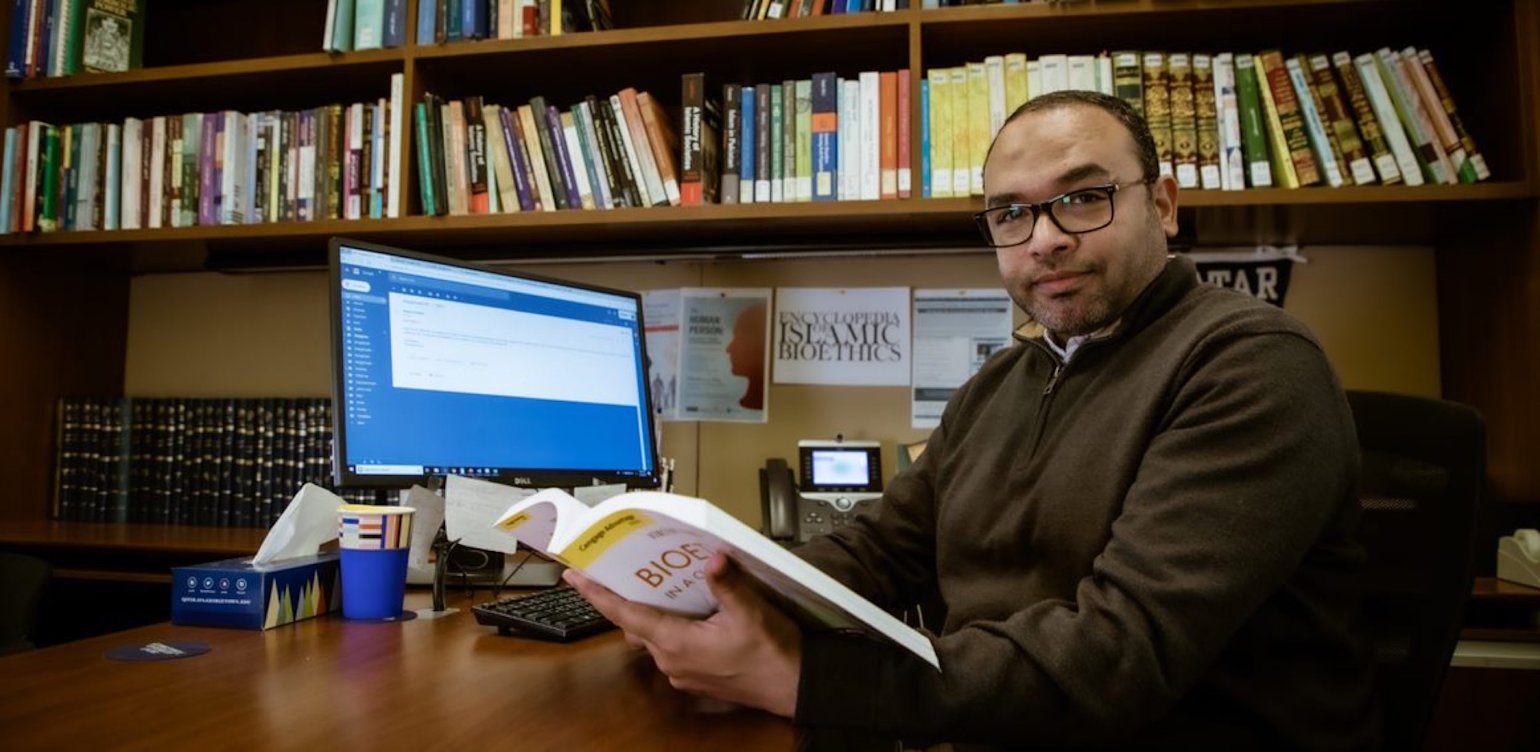Coronavirus (COVID-19) Updates
For the latest COVID-19 information and updates from Qatar Foundation, please visit our Statements page

Dr. Ayman Shabana, a faculty member at Georgetown University in Qatar (GU-Q)
On World Mental Health Day, Dr. Ayman Shabana at QF partner university Georgetown University in Qatar says a healthy mind “contributes to strengthening the ties between the different generations”
The COVID-19 pandemic has driven people to reconsider many things, including their priorities, especially with regards to the balance they need to maintain between different aspects of their lives. The pandemic has shown the necessity and importance of mental well-being.
Dr. Ayman Shabana, a faculty member at Georgetown University in Qatar (GU-Q) – a Qatar Foundation partner university – and an expert in medical ethics in Islam, highlights the importance of safeguarding the mental health of the elderly, especially amid crises such as the current pandemic.
“COVID-19 has had a specific impact on the elderly due to the special needs that they often have and also, in many cases, due to their dependence on others to meet these needs,” he explained.
Showing appreciation to the elderly plays a major role in boosting their mental health, and contributes to strengthening the ties between the different generations
“One of the prominent manifestations of this impact has been the restrictions associated with the preventive measures to avoid the spread of the disease. This is particularly important for this group because they are considered most susceptible to infection due to the gradual weakening of natural immunity with age.
“The elderly occupy a special place within a family. Showing appreciation plays a major role in boosting their mental health, and also contributes to strengthening the ties between the different generations, both within the family and in the wider society."
The degree of adaptation to the reality imposed by the pandemic, and the effect it has had on the mental health of the elderly varies according to many factors. “To know the extent of the impact that the pandemic has had on the mental health of the elderly, it is necessary to conduct field research with this age group and with those who deal with them directly, at a familial or professional level,” Dr. Shabana, an Associate Research Professor at GU-Q, said.
Elderly people may avoid getting vaccinated due to the lack of trusted information about available vaccines and their efficacy. They may also include concerns over potential side effects or further complications
“The impact also varies according to several considerations, which may include social factors (such as the healthcare provided by the state), family-related factors (such as the degree of cohesion between family members), and also personal factors (such as the mental health of the individual). But, in general, everyone has learned to cope with and adapt to the conditions imposed by this pandemic.”

Dr. Shabana pointed out the value that the elderly have in the Arab and Islamic culture in light of the religious teachings that emphasize the importance of showing respect to elders, demonstrating dutifulness towards parents, and maintaining strong family relationships. These teachings highlight the moral commitment on the part of the families to ensure that older members receive the necessary care and support they need in their old age, especially during difficult times such as the current pandemic.
Family and health authorities play an important role in encouraging and motivating the elderly to get vaccinated by understanding their concerns, providing reliable information, and answering their queries
However, he said: “The implementation of these teachings varies from one individual to another, and also from one society to another, depending on relevant social and economic circumstances. The ability of families to provide care also varies according to the degree of awareness of the necessary preventive methods as well as ways to deal with the disease in cases of infection.”
Dr. Shabana also spoke about the role of health institutions, both internationally and regionally, in providing protection for the elderly, saying: “Health institutions have played a major role in educating the public about the risks of the virus and ways to avoid infection, through awareness-raising campaigns and also by providing guidelines on certain measures, such as social distancing, quarantine, and contact-tracing.”

He believes that COVID-19 vaccines have certainly helped to alleviate the pressures associated with the fear of infection. Still, many challenges, worldwide, remain about both the availability and safety of these vaccines.
“Several factors may lead the elderly people to avoid vaccination. They include the lack of sufficient and trusted information about available vaccines and their efficacy. They may also include concerns over potential side effects or further complications, especially in the case of certain common diseases among the elderly.
“In these situations, both the family as well as health authorities play an important role in encouraging and motivating the elderly to get vaccinated by understanding their concerns, providing reliable information, answering their queries, and also by facilitating the process of vaccination for them.”

